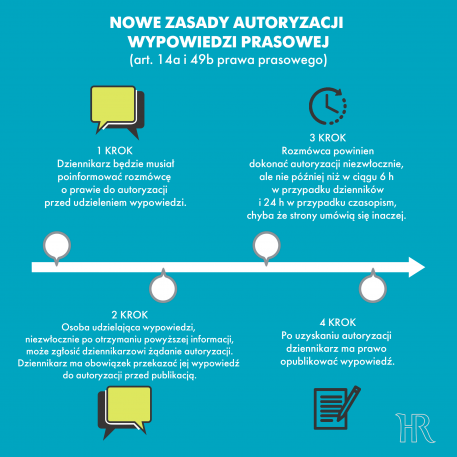
Last week, the President signed into law an amendment to the Press Law Act which modified, among other things, the procedure of pre-publication approval of statements made for purposes of press articles. The amendment seeks to adjust the law to the guidelines offered by the ECtHR in the judgment Wizerkaniuk v. Poland, in which the Court found Poland guilty of a violation of the freedom of speech. The Helsinki Foundation has been calling for refurbishing the legal framework of a pre-publication approval since 2011. “We welcome the reform and only regret that we had to wait for it for such a long time. The new regulation is not without defects but is still much media-friendly than the previously applicable provisions. Therefore, one can say that the reform is a small yet crucial step towards the strengthening of freedom of speech in Poland”, says Dorota Głowacka, a member of the HFHR legal team
New rights and obligations, for both journalists and their interlocutors
What changes does the amendment bring? First, a journalist will need to inform their interlocutor about the latter’s right to a pre-publication approval before the actual statement is made. There was no such obligation in the pre-amendment law. If a person making a statement wants to exercise this right, they should ask a journalist to submit their statements for a pre-publication approval immediately after receiving the information about the right to pre-publication approval. As under the “old” law, a journalist is legally obliged to do so. This requirement pertains only to a quote that a journalist wants to use in a soon-to-be-published piece.
Another important change is the introduction of time-limits for granting a pre-publication approval. An interlocutor should express their approval immediately and in no event later than after 6 hours (for pieces to be run in daily newspapers) or 24 hours (for magazine articles) unless the parties make other arrangements. These time-limits start to run as soon as a journalist submits, in “a mutually agreed manner”, the text for the interlocutor’s approval in a way that enables the latter to access the text. Upon obtaining an approval of a directly quoted statement, a journalist may legally publish the statement. The new rules have been written in articles 14a and 49b of the Press Law Act.


